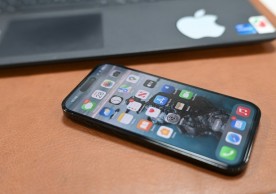Windows Phone market share in the U.S. and the UK is growing steadily year over year, but still the platform sits way behind the likes of Android and iOS in the overall numbers. The new Kantar Worldpanel data proves that there is life in the Windows Phone platform; it just needs to grow faster to stay relevant.
In the UK, the Windows Phone platform managed to grow from 3.7 percent market share to 6.7 percent from a year ago. BlackBerry on the other hand fell from 7.1 percent to 2.5 percent. Android and iOS both sit at the top with 68 percent and 18.4 percent shares respectively.
According to Dominic Sunnebo, global consumer insight director at Kantar Worldpanel ComTech, "Android and iOS continue to take the lion's share of smartphone sales in Britain. However, Windows phones are becoming increasingly popular with consumers. Windows has grown its share by 4.4 percentage points compared with the same period last year and now holds an 8.4% share of the market."
In the U.S., Windows Phone grew from 3.8 percent to 5.6 percent shares since last year. 42 percent of the persons who switched to a Windows Phone during this came from feature phones, 25 percent from another Windows Phone or Windows Mobile device, and 23 percent from Android.BlackBerry faltered badly by falling to 0.7 percent from 5.3 percent a year ago.
Kantar Worldpanel ComTech analyst Mary-Ann Parlato says:
"While iOS is similarly effective at capturing Android users and their own users, only 31% came from a feature phone device, showcasing Windows strength in attracting feature phone users.
"But it's not just about capturing the market that is yet to upgrade. Windows is also seeing success in the younger group. When looking at those who changed device, between 2011 and 2012 Windows was more successful at capturing older consumers aged 50-64. But when looking at those changing now and in the last year, we're seeing Windows now gaining share among those aged 25-34."
If Microsoft and Nokia can continue down this path, the Windows Phone platform could rise to double figures come 2014.
© Copyright 2020 Mobile & Apps, All rights reserved. Do not reproduce without permission.most read
related stories
more stories from Mobile
-
iPhone and Pixel Reunite at Coachella in #BestPhonesForever Ad
Join the reunion of iPhone and Pixel at Coachella in the #BestPhonesForever ad campaign. Experience the excitement!
ernest hamilton -
Huawei Launches New Pura 70 Smartphone Amid Chip Scrutiny, Challenging Apple with Fresh Lineup in China
Huawei challenges Apple with the new Pura 70 amid chip scrutiny. Explore the details of their fresh lineup in China.
ernest hamilton -
Google Merges Android and Hardware Teams: Emphasizing AI Integration
Learn about Google's bold move in merging its Android and Hardware teams, emphasizing AI integration. Read more!
ernest hamilton -
Galaxy A35 5G: Samsung's New Budget Phone Delivers Quality without Compromise
Explore Samsung's latest budget offering, the Galaxy A35 5G! Discover how this new phone delivers quality without compromise.
ernest hamilton -
Delta: The iOS Game Boy Emulator Thats Here to Stay (Probably)
Explore the world of classic gaming with Delta, the iOS Game Boy emulator that's here to stay, but still probable. Dive into nostalgia now!
ernest hamilton -
Samsung's April 2024 Security Patch Now Available for Select Galaxy Devices
Stay secure with Samsung's April 2024 Security Patch, now available for select Galaxy devices. Update yours today!
ernest hamilton -
iOS 17.5 Beta 2: Exciting New Features Coming Soon to Your iPhone
Get a sneak peek at iOS 17.5 Beta 2! Explore the exciting new features coming soon to your iPhone.
ernest hamilton -
Google's Next Foldable, Rumored to be the 'Pixel 9 Pro Fold', Expected to Boast Flagship Specs
Explore rumors surrounding Google's anticipated 'Pixel 9 Pro Fold', speculated to feature flagship specifications in the next foldable release
ernest hamilton















